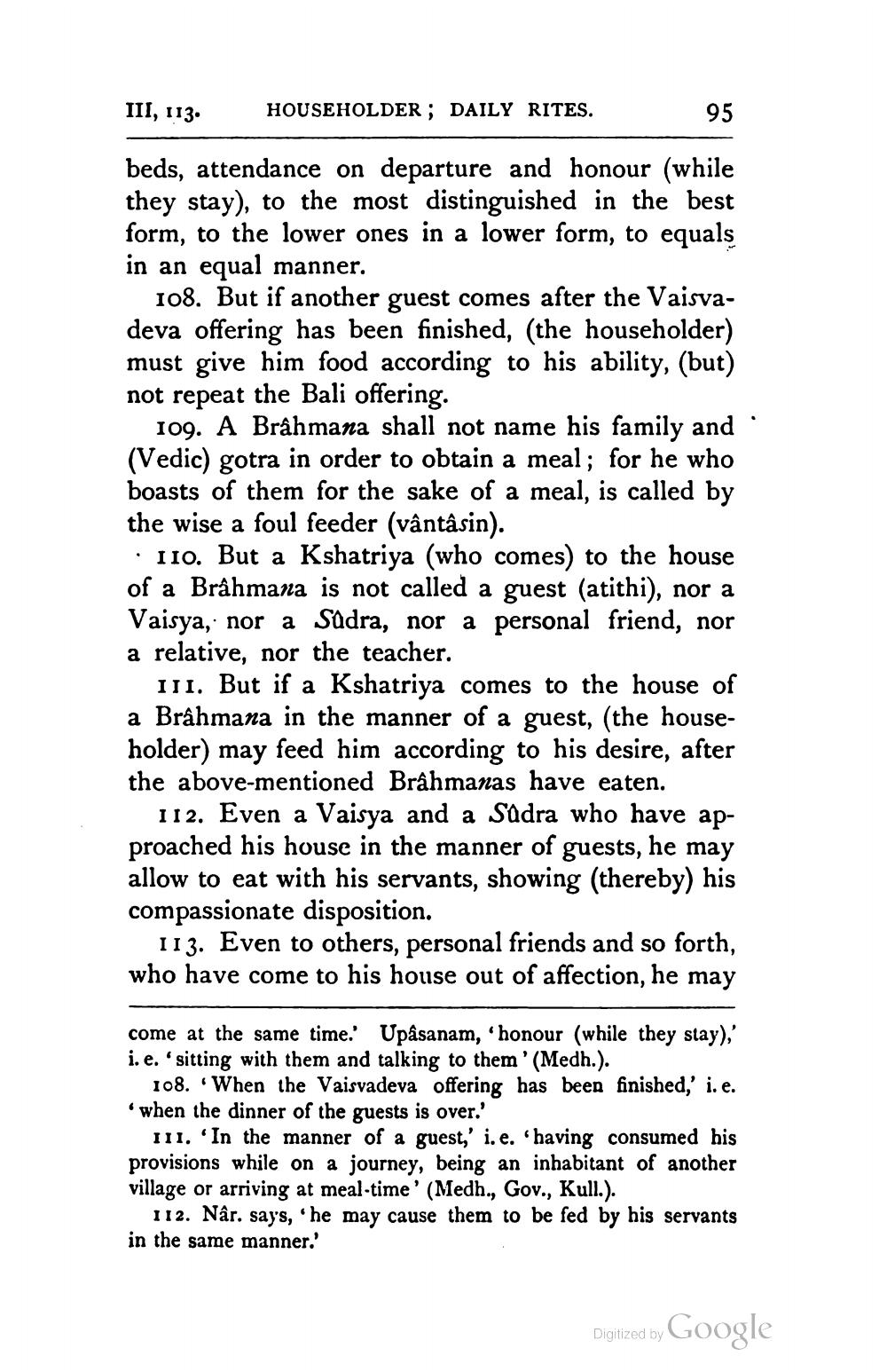________________
III, 113.
HOUSEHOLDER; DAILY RITES.
95
beds, attendance on departure and honour (while they stay), to the most distinguished in the best form, to the lower ones in a lower form, to equals in an equal manner.
108. But if another guest comes after the Vaisvadeva offering has been finished, (the householder) must give him food according to his ability, (but) not repeat the Bali offering.
109. A Brâhmana shall not name his family and (Vedic) gotra in order to obtain a meal; for he who boasts of them for the sake of a meal, is called by the wise a foul feeder (vântâsin). · 110. But a Kshatriya (who comes) to the house of a Brâhmana is not called a guest (atithi), nor a Vaisya, nor a Sadra, nor a personal friend, nor a relative, nor the teacher.
III. But if a Kshatriya comes to the house of a Brâhmana in the manner of a guest, (the householder) may feed him according to his desire, after the above-mentioned Brahmanas have eaten.
112. Even a Vaisya and a Sudra who have approached his house in the manner of guests, he may allow to eat with his servants, showing (thereby) his compassionate disposition.
113. Even to others, personal friends and so forth, who have come to his house out of affection, he may
come at the same time.' Upasanam, 'honour (while they stay);' i.e. sitting with them and talking to them '(Medh.).
108. When the Vaisvadeva offering has been finished,' i.e. • when the dinner of the guests is over.'
111. 'In the manner of a guest,' i.e. having consumed his provisions while on a journey, being an inhabitant of another village or arriving at meal-time' (Medh., Gov., Kull.).
112. Nâr. says, he may cause them to be fed by his servants in the same manner.'
Digitized by Google




